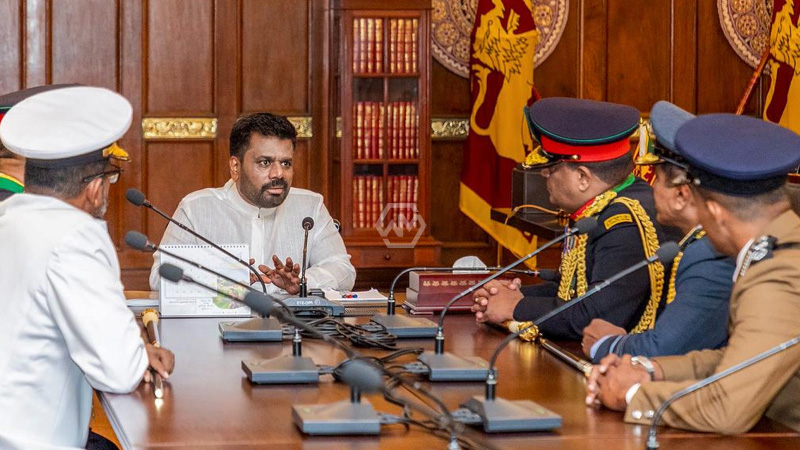- President Anura Kumara Dissanayake dissolves Parliament for an early election on November 14.
- Harini Amarasuriya appointed as Sri Lanka’s first female prime minister in 24 years.
- Dissanayake aims to consolidate power and address the country’s economic crisis.
Sri Lanka’s President Anura Kumara Dissanayake has dissolved Parliament and called for a snap election on November 14.
This move is a calculated attempt to leverage his post-election momentum and secure a majority in the 225-seat Parliament, where his party holds just three seats.
Sri Lankan President Dissolves Parliament, Appoints First Female Prime Minister
Dissanayake’s choice of Harini Amarasuriya as the new prime minister marks a significant step, making her the first woman to hold the role in 24 years. With limited parliamentary support, Dissanayake faces the immediate challenge of addressing severe austerity measures under an IMF agreement, imposed due to Sri Lanka‘s debt default. The upcoming election will be critical in shaping the government’s ability to tackle the nation’s pressing issues.
A key part of his strategy is the appointment of Harini Amarasuriya as Sri Lanka’s prime minister, the first woman to hold the post in nearly a quarter-century. A university lecturer and activist, Amarasuriya represents a break from traditional leadership and is expected to oversee several major ministries, including justice and health. Her role in shaping policy will be crucial as the new government seeks to address the severe economic challenges facing the country.
One of Dissanayake’s biggest hurdles is the legacy of the austerity measures implemented by his predecessor, Ranil Wickremesinghe. These measures were part of an IMF relief package following Sri Lanka’s default on its national debt. Dissanayake has promised to alleviate the burden on citizens while stabilizing the economy, but without a parliamentary majority, his ability to enact significant changes is limited.
The November 14 election will be a pivotal moment for Sri Lanka’s political future. It offers Dissanayake a chance to not only consolidate power but also to redefine the country’s approach to governance, shifting away from the elites blamed for the current economic troubles. His success in this election will determine whether his reformist promises can be realized.
Dissanayake’s call for an early election is a bold move that could reshape Sri Lanka’s political future. His ability to win a parliamentary majority will be crucial to delivering on his promises of economic recovery and reform.
“The strength of a nation derives from the integrity of the home.” — Confucius



